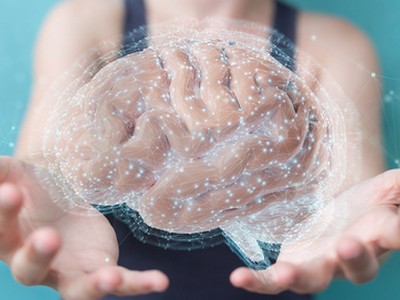
Broadbeach (07) 5539 9798 Depression Psychologist
Anxiety And Depression Psychologist Broadbeach

Introduction
Depression is a complex and typically misunderstood mental health condition that impacts millions of individuals worldwide. In this article, we will explore the subject of anxiety from the viewpoint of a Broadbeach psychologist, clarifying its signs, triggers, and treatment alternatives. By breaking the preconception surrounding depression and increasing awareness, we wish to offer valuable insights into this widespread mental illness.
Breaking the Stigma: Is Anxiety a Psychological Illness?
Depression is indeed a mental disorder. It is identified by consistent feelings of sadness, hopelessness, and an absence of interest or enjoyment in day-to-day activities. These signs can significantly affect one's ability to work and take pleasure in life. As a Broadbeach psychologist, I have seen firsthand the disastrous effects that depression can have on individuals and their liked ones.
FAQs about Anxiety Responded To by a Broadbeach Psychologist
Q: What are the typical signs of depression? A: Common symptoms of anxiety consist of persistent unhappiness, loss of interest in activities, changes in appetite or weight, difficulty sleeping or excessive sleeping, fatigue or loss of energy, feelings of worthlessness or guilt, difficulty concentrating or making choices, and persistent thoughts of death or suicide.
Q: How do I know if I have depression? A: If you experience numerous of the signs discussed above for two weeks or more and they considerably hinder your every day life, it is advisable to consult with a qualified expert such as a Broadbeach psychologist for a precise diagnosis.
Q: Can anxiety and depression coexist? A: Yes, stress and anxiety and depression frequently exist side-by-side. Many people with anxiety also experience symptoms of stress and anxiety such as excessive concern, uneasyness, irritability, muscle stress, and sleep disturbances.
Q: Is depression more typical in males or women? A: Anxiety can affect people of all genders, however studies have revealed that women are most likely to be diagnosed with anxiety than males. Nevertheless, this might be because of underreporting of symptoms in males due to societal expectations.
Q: What is the distinction in between unhappiness and depression? A: While it is normal to feel sad or down sometimes, anxiety is characterized by consistent sensations of sadness or loss of interest that last for an extended duration and significantly effect day-to-day functioning.
Q: Can depression be dealt with without medication? A: Yes, depression can be dealt with without medication. Talk therapy, such as cognitive-behavioral treatment (CBT), has been shown to be reliable in dealing with depression. Nevertheless, in some cases, medication might be essential and can be prescribed by a qualified healthcare professional.
Symptoms and Signs of Depression
Symptoms of Anxiety Psychologist Broadbeach
Depression manifests differently in each person, but there prevail signs that psychologists in Broadbeach watch out for during diagnosis. These signs include persistent sensations of sadness or vacuum, loss of interest in previously pleasurable activities, changes in hunger or weight, sleep disruptions, tiredness or absence of energy, feelings of worthlessness or extreme guilt, problem concentrating or surfersparadisechiropractic.com.au making decisions, and recurrent ideas of death or suicide.
Signs of Anxiety Psychologist in Broadbeach
A knowledgeable psychologist in Broadbeach can acknowledge signs of anxiety through various indications observed during an assessment. Indications of depression may include social withdrawal and isolation, disregarding personal hygiene or appearance, decreased efficiency at work or school, irritation or anger outbursts, unexplained physical pain such as headaches or stomachaches, and increased usage of alcohol or drugs as a coping mechanism.
Symptoms of Depression In Male Psychologist Broadbeach
Depression can provide in a different way in males compared to females. Some signs frequently seen in males with anxiety consist of irritation or anger, aggressiveness, negligent habits, increased risk-taking, loss of interest in work or hobbies, physical symptoms such as headaches or digestion problems, and problem expressing emotions or looking for help.
Symptoms of Severe Anxiety Psychologist in Broadbeach
https://surfersparadisechiropractic.com.au/dr-craig-haywood-chiropractor-gold-coast/Severe anxiety is a more serious form of the condition that needs instant attention. Symptoms of severe depression may consist of an inability to work in every day life, considerable weight-loss or gain, sleeping disorders or hypersomnia, extreme fatigue or absence of energy, intense sensations of insignificance or regret, trouble concentrating or making choices, and persistent ideas of death or suicide.
Symptoms of Clinical Depression Psychologist Broadbeach
Clinical anxiety describes a diagnosable depressive disorder that meets specific requirements laid out in the Diagnostic and Statistical Handbook of Mental Illness (DSM-5). Signs of clinical depression consist of relentless feelings of unhappiness, loss of interest in activities, changes in hunger or weight, interrupted sleep patterns, low energy levels, feelings of insignificance or guilt, problem focusing or making choices, and frequent thoughts of death.
Treatment Alternatives for Depression
Treating anxiety requires a detailed approach that attends to the underlying causes and provides people with the tools to manage their symptoms effectively. As a Broadbeach How Do You Spell Anxiety Psychologist Broadbeach Near Me psychologist, I work carefully with clients to establish individualized treatment strategies customized to their special needs and scenarios. Here are some typical treatment options for anxiety:
Medication: Sometimes, medication might be prescribed to assist handle signs of depression. Antidepressant medications can help manage brain chemicals accountable for mood regulation.
Psychotherapy: Talk treatment is an important part of dealing with anxiety. Cognitive-behavioral treatment (CBT) is one reliable technique that assists people identify negative idea patterns and establish much healthier coping strategies.
Lifestyle modifications: Taking part in routine workout, maintaining a well balanced diet plan, getting adequate sleep, and avoiding excessive alcohol or drug use can have a favorable effect on psychological health.
Support groups: Joining support groups or taking part in peer support can offer individuals with a sense of community and understanding.
Self-care practices: Engaging in activities that bring pleasure and relaxation, such as pastimes, mindfulness workouts, and self-care routines, can assist enhance mood and well-being.
Stress management: Knowing healthy methods to handle tension through methods like deep breathing, meditation, and time management can be beneficial for individuals with depression.
Conclusion
Depression is a mental disorder that impacts countless individuals worldwide. By breaking the stigma surrounding depression and increasing awareness, we can promote a more compassionate and encouraging society. As a Broadbeach psychologist, I strive to provide important insights into depression and offer reliable treatment alternatives to help people overcome this difficult condition. Keep in mind, if you or someone you know is fighting with anxiety, reach out to a qualified specialist for support. You are not alone, and help is available.
Disclaimer: The details provided in this short article is for educational purposes only and must not be taken as professional medical advice. Please speak with a certified health care professional for an accurate medical diagnosis and customized treatment plan.